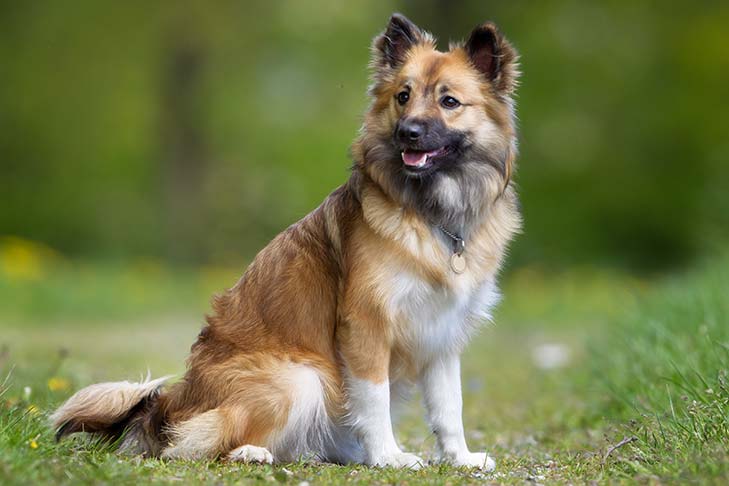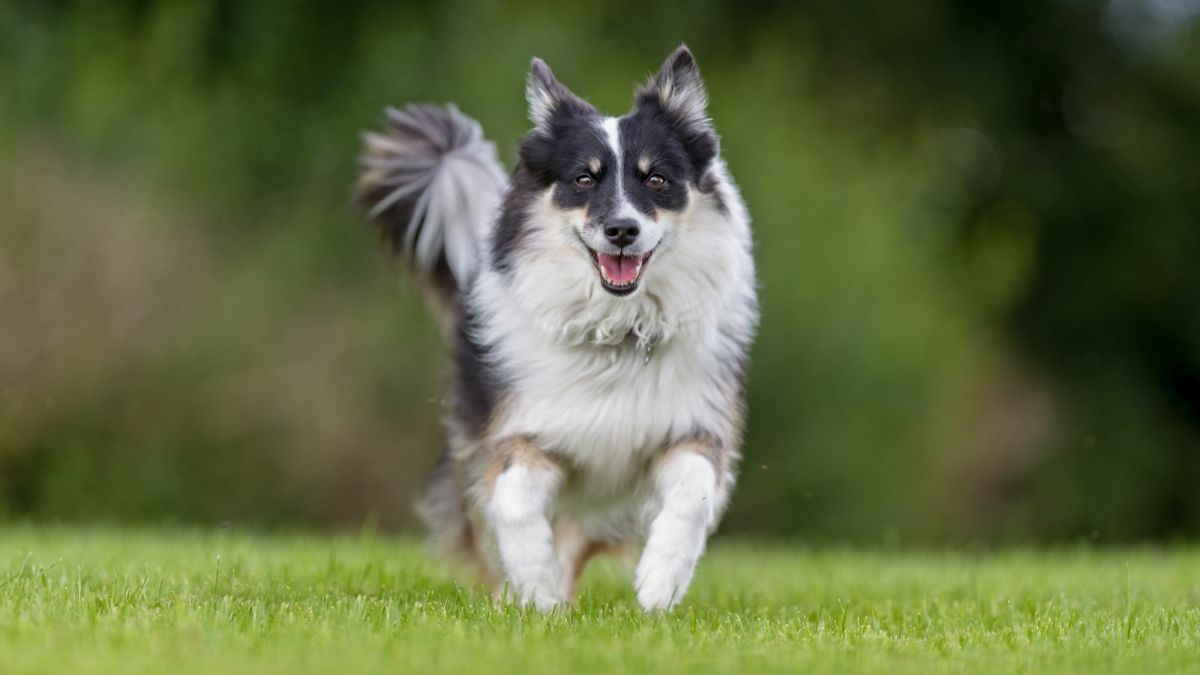The Icelandic Sheepdog is a breed known for its history, temperament and behavior, training, and feeding requirements. This article provides comprehensive information about each aspect in a concise and precise manner.
Originating in Iceland, the Icelandic Sheepdog has a rich history, dating back to the settlement period. With its friendly and playful temperament, this breed makes an excellent companion and family pet. However, training can be challenging due to their independent nature, requiring a patient and consistent approach.
Proper feeding is essential to maintain their health and vitality, with a well-balanced diet consisting of high-quality dog food. Understanding these key aspects is crucial for anyone considering owning an Icelandic Sheepdog.

Credit: www.akc.org
Icelandic Sheepdog History
The Icelandic Sheepdog, also known as the Icelandic Spitz, is a breed with a rich history that dates back over a thousand years. Originating from Iceland, these dogs played a vital role in the lives of Icelandic farmers and shepherds.
Origin Of The Icelandic Sheepdog
The Icelandic Sheepdog’s origins can be traced back to the Viking Age when they were brought to Iceland by the Norse settlers. These dogs were believed to be descendants of the ancestors of the modern-day Norwegian Buhunds.
Historical Role Of Icelandic Sheepdogs
Known for their versatility and agility, Icelandic Sheepdogs were primarily used for herding sheep. They were also tasked with protecting livestock from predators, such as foxes and eagles. Additionally, they served as reliable companions and watchdogs, alerting their owners to any potential danger.
Conservation Efforts And Breed Revival
During the 20th century, the Icelandic Sheepdog faced a decline in numbers due to various factors, including crossbreeding and the threat of extinction. However, dedicated efforts were made to conserve and restore the breed. Today, thanks to the hard work of breeders and enthusiasts, the Icelandic Sheepdog is enjoying a revival and continues to be cherished for its unique traits and contributions to Icelandic culture.

Credit: pethelpful.com
Temperament And Behavior
The Icelandic Sheepdog is known for its friendly and outgoing nature, making it a perfect companion for families. Their intelligence and adaptability allow them to easily adjust to new environments and situations. With their herding instincts, they may display a protective behavior towards their loved ones.
Training And Socialization
Early socialization and exposure is crucial for Icelandic Sheepdogs to develop good temperaments and behavior. By exposing them to various environments, people, and animals when they are young, they will be more confident and less likely to develop fear-based aggression. Positive reinforcement training methods work best with this breed, as they respond well to rewards and praise. Using treats, toys, and verbal affirmations, owners can effectively train their Icelandic Sheepdogs and reinforce positive behaviors.
In addition to training, mental and physical stimulation is important for this active breed. Providing them with daily exercise, such as long walks or playtime in a securely fenced yard, will help prevent boredom and destructive behavior. Mental stimulation can be achieved through puzzle toys, obedience training, and interactive games that challenge their intelligence.
By following these guidelines, Icelandic Sheepdog owners can ensure their pets are well-behaved, happy, and healthy companions.

Credit: www.amazon.com
Feeding And Nutrition
The Icelandic Sheepdog is a breed with a rich history and unique temperament. When it comes to feeding and nutrition, it’s important to provide them with a well-balanced diet to support their overall health and well-being. A recommended diet for an Icelandic Sheepdog includes high-quality dog food that is appropriate for their age, size, and specific dietary needs. The portion size should be determined based on the individual dog’s activity level, metabolism, and overall calorie needs.
When it comes to the common health issues and dietary considerations of Icelandic Sheepdogs, it’s important to note that they can be prone to certain conditions such as hip dysplasia and obesity. Therefore, it’s crucial to monitor their weight and provide a diet that helps maintain a healthy body condition. Additionally, regular exercise is essential for keeping them physically and mentally stimulated.
Frequently Asked Questions For Icelandic Sheepdog History, Temperament And Behavior, Training, Feeding
What Is The History Of Icelandic Sheepdogs?
The Icelandic Sheepdog is a breed that has been around for centuries, originally brought to Iceland by the Vikings. They were used as herding dogs, helping to manage livestock in the harsh Icelandic climate. Today, they are still valued for their herding abilities and their friendly, outgoing nature.
What Is The Temperament And Behavior Of Icelandic Sheepdogs?
The Icelandic Sheepdog is known for its friendly and outgoing nature. They are intelligent, alert, and quick to learn, making them easy to train. They are also known to be good with children and other pets, making them a great family dog.
They have a natural instinct to herd, so they may try to herd children or other animals.
How Should I Train My Icelandic Sheepdog?
When training an Icelandic Sheepdog, it’s important to use positive reinforcement techniques. They respond well to praise and rewards, so be sure to use treats and verbal cues to reinforce good behavior. Training sessions should be short and fun, as they can become bored easily.
Consistency and patience are key when training this breed.
What Is The Best Way To Feed An Icelandic Sheepdog?
The Icelandic Sheepdog should be fed a high-quality dog food that is appropriate for their age, size, and activity level. It’s important to measure their food and monitor their weight to prevent obesity, as this breed can be prone to gaining weight.
Additionally, be sure to provide fresh water at all times and avoid feeding table scraps.
Conclusion
The Icelandic Sheepdog holds a rich history as a versatile and loyal companion. With a friendly and playful temperament, they are well-suited for families and active individuals alike. Training and socialization are crucial for their well-being, as they thrive on mental stimulation.
When it comes to feeding, a balanced diet is essential to maintain their health and vitality. Understanding the history, temperament, behavior, training, and feeding of the Icelandic Sheepdog is key to providing them with the care they deserve. Ensure a happy and fulfilling life for your furry friend by embracing their unique traits and meeting their needs.
